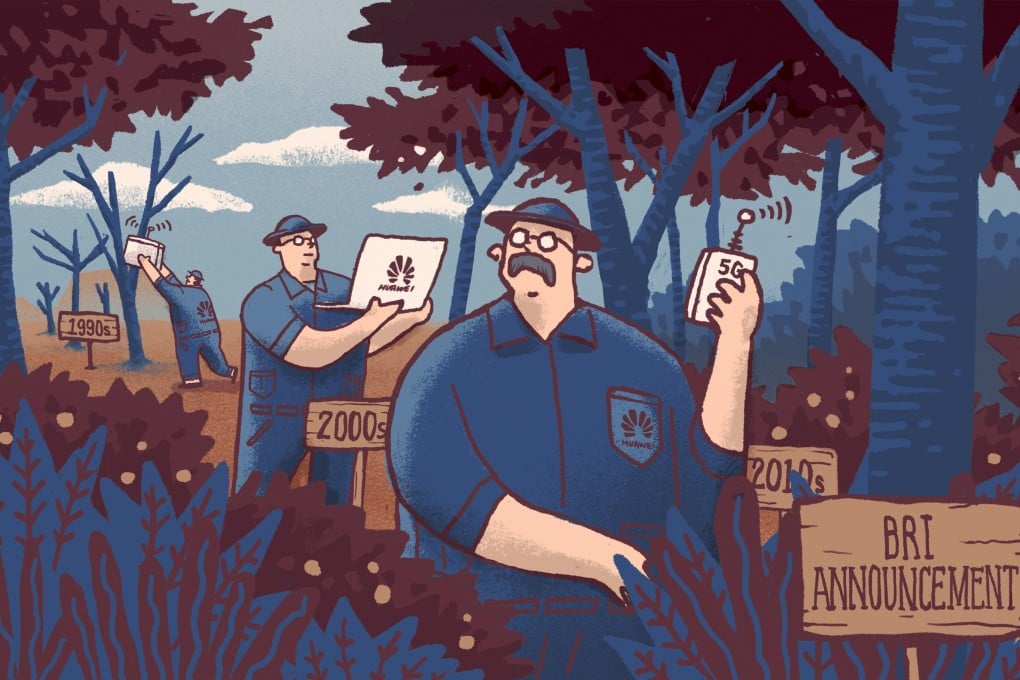Years before China’s Belt and Road plan got its name, Huawei was driven to seek emerging-market contracts
- In the fourth instalment in an eight-part series on Huawei, our Africa Correspondent Jevans Nyabiage, US Deputy Bureau Chief Jodi Xu Klein and Asia Reporter Meaghan Tobin look at how Huawei had been expanding in emerging markets outside China long before the belt and road strategy even got its name
- As early as 1996, company executives had travelled as far afield as Brazil, Russia and Africa in search of business opportunities

When Jacky Gao Kexin put his hand up for his first overseas assignment in 2004, the young Huawei engineer had just completed three years of after-sales customer service in Henan and Jiangsu provinces in his home country.
Finding himself halfway around the world in Lagos, a megacity of 16 million people in Africa’s fourth-largest economy, it would take Gao countless long weekends and sleepless nights – including being robbed at gunpoint, twice – to make headway in Nigeria.
VMobile, a local network operator with close to 1 million cellular phone users, approached Gao with a problem that its vendor had left unresolved. Gao worked through a weekend with his technicians and came up with a solution, displacing the then vendor Alcatel, and eventually Ericsson, as VMobile’s hardware and software supplier in Nigeria. VMobile was eventually sold to Kuwait’s Zain Group, which in turn was taken over by India’s Bharti Airtel in 2010.
By 2007, when Huawei promoted Gao to head its business in Yaounde, the company’s share of central Africa’s telecoms market had risen to an estimated 40 per cent, including its first US$100 million contract in Cameroon.
A decade later today, Huawei counts Africa as its third-biggest sales market as it rides on the explosive growth in mobile phone usage to dominate the sale of telecoms backbone equipment and software on the continent, operating in 40 of Africa’s 54 countries.
Gao’s Lagos experience would be a common lore in Huawei’s emerging-market sales offices from Southeast Asia to South America: a mixture of grit, chutzpah and dogged devotion to customer service that catapulted the Chinese company from a low-budget vendor of small telecoms networks into a challenger to Ericsson and Nokia. With 2019 sales growing 19 per cent to US$123 billion, Huawei is five times bigger than its two European rivals in revenue and many times more profitable.
